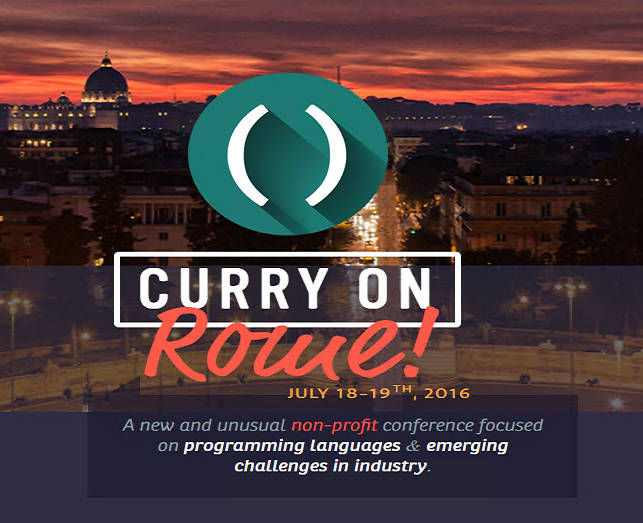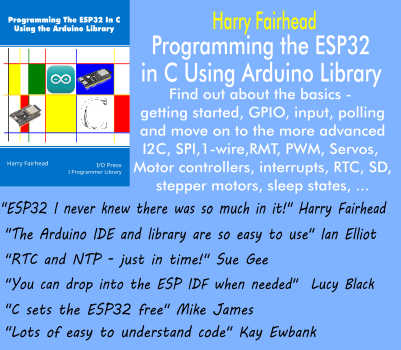| Cutting Edge Languages At Curry On |
| Written by Mike James |
| Monday, 01 August 2016 |
|
If you get the joke in the title then this is for you. Curry On is a non-profit conference about programming languages and, if you couldn't make it to Rome, the videos from it are online now.
Programming languages - what could be more important to a programmer? Over the years we have invented lots and lots of languages, most of which simply die without making any impact at all. There has been a progressive trend away from languages that reflect the structure of the underlying machine and more and more reflect the structure of the outside world or at least the problem domain. Despite all of this programming hasn't changed much since we started programming in assembler - which apparently is making a comeback. There have been some improvements, structured programming, modular programming and eventually structured object oriented programming. There have been some detours from the main route - logic programming, declarative programming, reactive programming and functional programming but nothing that has changed things in a major way. We still write programs in languages that explicitly express algorithms. How to make sense of it all? You need to ask an expert and this is what the Curry On conference aims to bring together in one place - experts on language. There were talks by programming pioneers Larry Wall and Matthias Felleisen, as well as speakers from Google, Twitter, Facebook, Microsoft, and Oracle. The idea is to provoke a discussion between academics and the industry. It is an odd fact that while programming languages are topic of active research, which languages we use is more a matter of commercial success - hence dialog is important.
Unfortunately the topics covered weren't revolutionary in the main - mostly speakers pushing their particular take on some aspect of methodology or perhaps one of the existing paradigms - functions, strong typing and so on, or just a general philosophic musings about the creation of software and why it is difficult. Actual languages were a bit thin on the ground. A talk by Andrey Kuzmin & Kolja Wilckev Creating a Fun Game with Elm introduced the Elm functional language, Tijs van der Storm introduced Rascal: the Swiss Army Knife of Meta Programming, Oskar Wickström Oden told delegates about A Functional Programming Language for the Go Ecosystem, Kasper Lund Dartino questioned the idea of A managed language on micro-controllers? and Matthias Felleisen covered The Racket Manifesto. So nothing really new - but what can you expect? Overall there are some interesting talks and one or two amusing moments, but no breakthroughs. It is interesting that the functional programming community seem to be punching above their weight and telling everyone how things should be done. I suppose the newest paradigm always shouts loudest - is functional really that new? Why no talks on graphical "block" languages? What has happened to constraint and logic languages? Is there nothing new in objects? Finally pick one talk to take home?
Mine would be Larry Wall's who says:
Perl can be a first computer language, but we try to think of it more as a last computer language.
This goes to remind us that no matter how inelegant Perl is, it is the only much-used language that is out there on a limb doing things its own way. Compared to all the Java plus a bit of functional languages that there are in the world, we need more off-the-wall (pun intended) innovations like Perl.
More InformationRelated ArticlesAssembler In The Top Ten Languages For July Scratch Blocks For Beginners In Developer Preview The Evolution Of Programming Languages
To be informed about new articles on I Programmer, sign up for our weekly newsletter, subscribe to the RSS feed and follow us on, Twitter, Facebook, Google+ or Linkedin.
Comments
or email your comment to: comments@i-programmer.info
|
| Last Updated ( Monday, 01 August 2016 ) |



